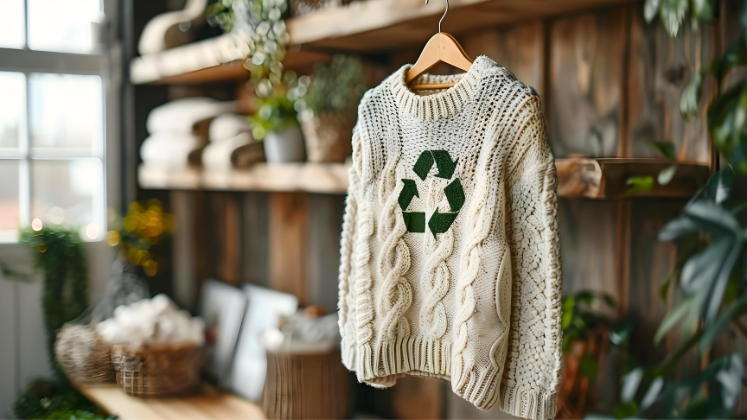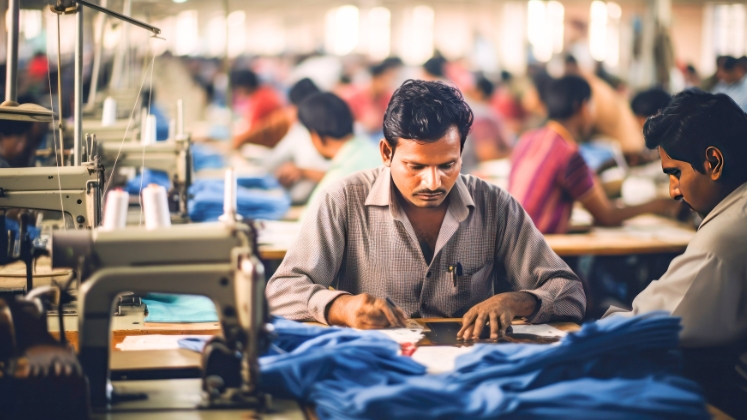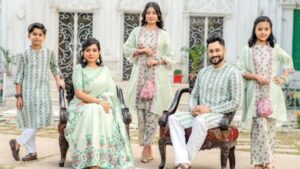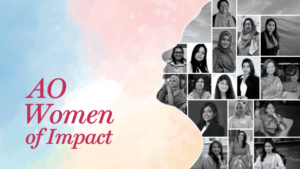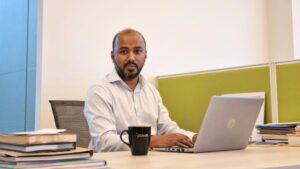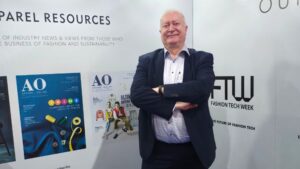Bangladesh has set ambitious goals to become more sustainable. For example, it aims to reduce carbon emissions by 21.8 per cent by 2030 and to achieve 15 per cent of its electricity from renewables by 2030, 40 per cent by 2041 and 100 per cent by 2050. The RMG industry is also striving to become highly sustainable and to contribute significantly towards a ‘Sustainable Bangladesh’.
The industry’s initiatives are moving beyond green factories to include the use of sustainable (and alternate) materials; ESG tracking; traceability and blockchain; and circular economy. All these are being pushed through greater emphasis on ‘Co-Creation’ of sustainability as brands and impact investors join hands with factories, providing financial support to RMG companies and helping them develop their environmental, social and corporate governance capacity.
Fashion brands and retailers are also collectively supporting green initiatives in the fashion supply chain at the country level. Apparel factories are adopting closed-loop production methods, zero-waste design principles and aligning their contributions with the SDGs (Sustainable Development Goals), the Paris Agreement and the UNFCCC’s Fashion Industry Charter for Climate Action. They are also focusing on safer chemical management by using advanced water treatment facilities and developing sustainable supply chains.
Co-creation of sustainability gaining momentum in Bangladesh
Apparel factories have always insisted that brands should come forward to support sustainable initiatives more actively. There is a strong perception that most brands are not very active in supporting the sustainable initiatives of their suppliers. However, at a larger level, the recent past has witnessed some major developments that are highly significant for Bangladesh.
Focus on renewable energy
A few months ago, during COP28, renowned fashion brands like Bestseller and H&M Group pledged to invest in a 500MW offshore wind power project in Bangladesh, expected to start in 2028. It would be the first large-scale offshore wind park in Bangladesh claiming to reduce CO2 emissions by 725,000 tonnes annually.
Bestseller will be investing US $ 100 million in the first utility-scale wind project off the coast of Bangladesh. Its CEO believes that by pledging to invest significantly, the brand can support the availability of renewable energy in one of its key manufacturing countries and aim to reduce climate emissions from its supply chain.
Within the global fashion industry, indirect GHG emissions from areas such as material production and manufacturing often constitute 90 per cent – 95 percent of a company’s total emissions. To mitigate these, Bestseller is also working with suppliers to set reduction goals and shift towards renewable energy, exemplified by its 2022 initiative aiding Bangladeshi textile manufacturers to invest in solar panels.
Green funding to ensure sustainable initiatives continue
Another example of co-creation, especially by brands, is also starting with a focus on Bangladesh. H&M, Gap, Mango and Bestseller are leading the effort to provide manufacturers with cheaper loans for decarbonisation projects. Just a few days ago, it was announced that this global initiative will begin in Bangladesh.
The Future Supplier Initiative, facilitated by The Fashion Pact in partnership with Apparel Impact Institute, Guidehouse and DBS Bank, offers a collective financing model to support deep decarbonisation in the apparel sector. To help overcome the barriers that prevent many factories from adopting electrification and renewable energy solutions, a combination of technical support and financial incentives will be used.
In its first year, the cohort will prioritise factories based on impact, build technical proposals for achieving deep decarbonisation and de-risk lending to suppliers to implement these projects at more attractive rates. In the second year, the program will focus on project implementation and monitoring of the climate impact created through these investments.
The Fashion Pact, a global initiative of companies in the fashion and textile industry, believes that The Future Supplier Initiative is a unique opportunity for fashion retailers to join forces and drive progress towards science-based targets, offering the much-needed financial and technical support to apparel suppliers in their journey to decarbonisation. Responding to specific queries raised by Apparel Online Bangladesh for more details, it said that it is unable to respond due to the early stage of this first cohort.
Though so far, only a handful of top groups have received major financial support, other groups are optimistic that they will also receive such support due to their strong commitment to sustainable efforts.
“We are currently in discussion with several brands regarding financial assistance for our sustainability efforts. While no formal agreements have been finalised yet, these discussions are promising and reflect the shared commitment between us and our partners to enhance sustainability across the supply chain,” informed Humayun Kabir Salim, MD, Khantex Fashions Limited (KFL) Group. The US $ 50 million group is aggressively growing in sustainability on various fronts and one of its main production facilities aims to become carbon neutral by 2030, reducing emissions by 25 per cent.
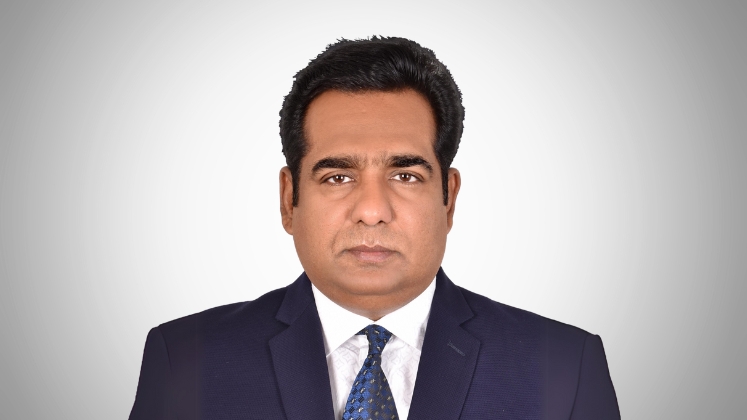
In a recent example of supporting RMG companies with ‘Green Finance’, the International Finance Corporation (IFC), a member of the World Bank Group and the largest global development institution focused on the private sector in developing countries, announced US $ 100 million debt financing package for EPIC Group, a globally well-known apparel manufacturing giant. This package includes US $ 70 million sustainability-linked loan and US $ 30 million green loan.
It is worth mentioning that IFC previously supported EPIC Group with advisory services on greener production and decarbonisation through the Global Trade Supplier Finance program.
This funding will support EPIC Group’s expansion in Bangladesh. The group will use the proceeds to upgrade its washing and wastewater treatment plants and to invest in technology and equipment that will reduce energy and water use in Bangladesh.
The loan is structured with three ambitious corporate sustainability performance targets: reducing greenhouse gas (GHG) emission intensity, decreasing freshwater intensity and increasing the representation of women in junior and middle management. This initiative, which includes the first green loan with sustainability-linked features in the manufacturing sector, is expected to help EPIC Group create a large number of jobs.
Martin Holtmann, Country Manager for Bangladesh, Bhutan and Nepal at IFC, informed Team AR, “Over the years, IFC has deployed a holistic package of investment and advisory services to help the RMG sector in Bangladesh raise their labour, safety and environmental standards and improve productivity and competitiveness.” He further added that IFC’s approach in supporting climate adaptation emphasises making investments and private sector clients resilient to climate impacts. IFC’s total investment in the country’s RMG sector is US $ 154 million. This partnership will support EPIC Group in significantly reducing its environmental footprint, targeting a 65 per cent reduction in GHG emissions per garment produced by 2030 compared to the 2019 benchmark.

Ranjan Mahtani, Executive Chairman of EPIC Group said, “Partnering with IFC is a significant step for EPIC Group in pursuit of a more sustainable and innovative textile manufacturing industry.”
Such collaboration not only allows companies to expand their operations but also reinforces their commitment to reducing environmental footprint and enhancing resource efficiency.
In January 2024, IFC approved US $ 40 million to Badsha Group. Badsha Group’s entity Pioneer Denim Ltd. (PDL) intends to gradually decarbonise its production process and become more sustainable. The factory underwent an in-depth Cleaner Production Assessment, resulting in a reduction of 587,692 m3/year of water consumption, avoidance of 12,157 tonnes/year of CO2 emissions and a decrease of 1,126 tonnes/year of chemical use through the implementation of three specialised measures in the process area.
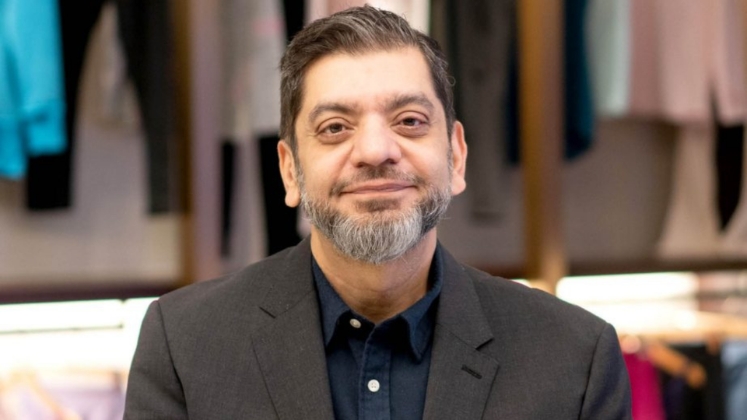
Another example of co-creation by impact investors is US $ 52 million credit facility to DBL Group, one of Bangladesh’s most respected groups spanning from spinning to retail, provided by British International Investment (BII), the UK’s Development Finance Institution (DFI) and impact investor. This initiative, launched last year, supported DBL in establishing Jinnat Textile Mills Ltd., a greenfield cotton yarn spinning mill housed in a LEED-certified green building.
This loan to DBL Group qualifies under the 2X Challenge, contributing to strengthening women’s economic participation and improving the quality of employment for women. The 2X Challenge, an initiative by the Development Finance Institutions (DFIs) of the G7, mobilises capital to support increased economic empowerment for women in emerging economies.
RMG exporters focusing on new-age sustainable initiatives
The industry is talking beyond what we call ‘obvious’ sustainability initiatives and is pushing efforts towards implementing Blockchain and Traceability; ESG Monitoring; and Circular Economy with more use of alternative materials and recycling of textile waste materials – both solid and liquid.
Use of alternate and recycled materials
Experts believe Bangladesh could annually export US $ 6 billion worth of garments by locally processing 400,000 tonnes of recycled yarn and fabrics produced by local garment makers. Currently, only 5 per cent of this material is recycled locally, with over 35 per cent being incinerated or landfilled.
This shift towards sustainable practices aligns with new regulations from key export destinations, particularly the European Union (EU). In 2023, the EU imported US $ 24 billion worth of apparel from Bangladesh and its Due Diligence Act now mandates global apparel brands to prioritise using recycled yarn and fabrics.
Several top manufacturers and brands are actively adopting alternative materials. Bangladesh is positioning itself as a significant producer of recycled yarn and fabrics from plastic bottles, targeting the high-value garment market, including activewear, outerwear, padding and quilting. Seven local mills have invested a total of BDT 1,670.73 crore in plants to convert waste plastic bottles into flakes, then into recycled yarn and fabrics, according to the Bangladesh Textile Mills Association (BTMA). For example, Debonair Group in Bhaluka, Mymensingh collects 30 to 40 tonnes of plastic bottles daily, processing them into chips, fibres, yarn and eventually garment materials.
Incredible Fashions Ltd. (IFL) produces 80 per cent of its products using sustainable materials like organic cotton, recycled cotton and recycled polyester. It also uses Lenzing’s sustainable materials such as ECOVERO Viscose and Tencel, which are all cellulose fibres. According to Ashna Huq, Director at IFL, the company focuses on recycling pre- and post-consumer waste into yarn for production. Its facilities feature efficient cutting machines that minimise waste and advanced systems for collecting and segregating textile waste for recycling or reuse.

Floreal Knitwear, a subsidiary of CIEL Textile, incorporates recycled cotton and Cashmere in its clothing. Its Bangladesh facility, with a capacity of 1.5 million pieces, produces a variety of qualities from wool to cotton blends, using both hand-flat and automatic machines. The company ensures high-quality cotton sourcing and offers product traceability.
SAAD Group, based in Gazipur, is a leading denim fabric manufacturer with a monthly capacity of around 2.5 million garments. Its fabric range includes 100 per cent cotton, cotton-poly blends, spandex blends, pure lyocell and both pure and blended viscose compositions. It also produces a line of hemp denim. Hemp is noted for its durability, ability to maintain shape, resistance to stress, mold and UV light.
Additionally, SAAD Group manufactures shirts made from Tencel Denim cellulosic fibre, derived from Eucalyptus wood. Tencel fabric is known for its superior absorbency, softness and high moisture modulus, ensuring minimal shrinkage. Tencel fibres are also biodegradable, making them an environmentally friendly choice for eco-conscious consumers.
New Asia Group, with an annual turnover of US $ 600 million, has also launched a Supplier Sustainability Development Program to ensure that its sustainability efforts extend throughout its supply chain. “We are encouraging our yarn suppliers to provide more recycled and organic yarn and are working with our chemical suppliers to ensure they supply ZDHC enlisted chemicals,” said Md. Monirul Islam, Manager,HR & Sustainability, JM Fabrics Ltd. (New Asia Group).

Circularity becomes an essential concept
A report from the Centre for Policy Dialogue (CPD) sheds light on Bangladesh’s garment waste management, revealing that fabric and garment factories discard between 25 per cent to 47 per cent of resources despite efforts to enhance efficiency. The report emphasises that waste is inevitable during various production stages, including design cutting, stitching and dyeing, contributing significantly to environmental impact.
The TTC (Transition Towards Circularity) concept is gaining momentum as a tool to address sustainability issues globally and in Bangladesh. Generally, resources are extracted from nature, used to produce products and discarded after consumption by apparel companies. The TTC initiative involves developing comprehensive waste management and recycling policies, setting targets for resource usage efficiency and waste reduction, promoting renewable energy sources and conducting awareness campaigns and training programs.
Akib Rahman, Director at Victoria Intimates Ltd., stated, “The demand for implementing TTC in Bangladesh has significant implications for business operations in our garment sector. Meeting TTC expectations not only maintains business relationships but also positions organisations as responsible and environmentally conscious suppliers.”
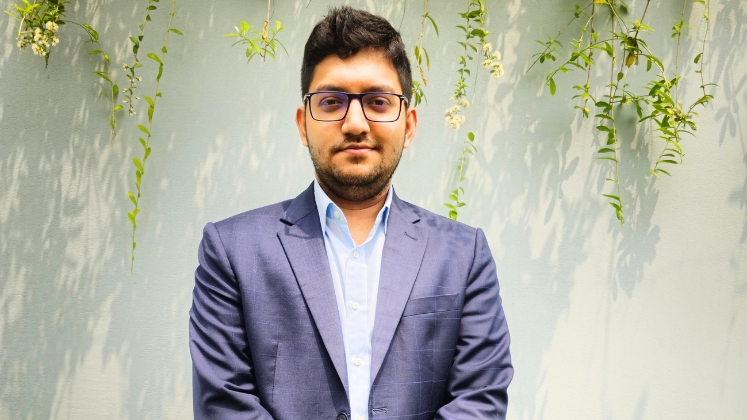
Waste recycling is a major industry focus, including effective management of dyes and chemicals. The industry emphasises dyeing facilities where no wastewater is released into the environment and 100 per cent of water used in dyeing processes is recycled. Sophisticated ETPs and reverse osmosis processes extract over 96 per cent of salt for reuse, treating water to potable standards.
Ashna mentioned, “One of our main dyeing facilities uses Bluesign dyes, free of environmentally harmful substances, with a high fixation rate. Typical dyes have a 55 per cent fixation rate, releasing 45 per cent of unfixed dyes for ETP treatment. This facility achieves 85 per cent fixation rate, releasing only 15 per cent for hydrolysis. This reduces water usage and energy consumption, allowing more dye batches per day at lower temperatures, significantly conserving energy.”
J.M. Fabrics Ltd., (New Asia Group) is exploring chemical and waterless dyeing processes with suppliers and technology providers. This innovative approach aims to drastically reduce water consumption and minimise chemical waste, contributing to a more sustainable dyeing process. The company highlighted its commitment to circularity by partnering with Reverse Resources, a textile-to-textile recycling platform, to efficiently track and manage textile waste, converting it into valuable resources.
In a closed-loop production process, resource use is maximised and waste is minimised, with many RMG companies following suit at their level. Khantex Fashions Ltd., adopts a closed-loop production method primarily by procuring recycled raw materials, minimising waste and maximising resource efficiency. The company is progressively integrating automation into its processes, including the use of Jeanologia laser technology, Yilmak ozone and dyeing machines and Canlar high-temperature machines with low liquor ratios. These technologies not only enhance efficiency but also reduce water and chemical usage, aligning with the company’s sustainability goals.
However, for a broader adoption of closed-loop production methods and circularity approach, Mohammad Monower Hossain, Head of Sustainability at TEAM Group emphasised the need for recycling plants in close proximity, stating, “We do not have any recycling plants nearby. Organisations like Reverse Resources and Enviu export waste to other countries, which contributes to additional carbon emissions from transportation. While their efforts are commendable, to address associated issues and firmly establish circularity, recycling infrastructure should be developed within the country. We are on a journey towards circularity, but confidently claiming closed-loop production status will require time.”
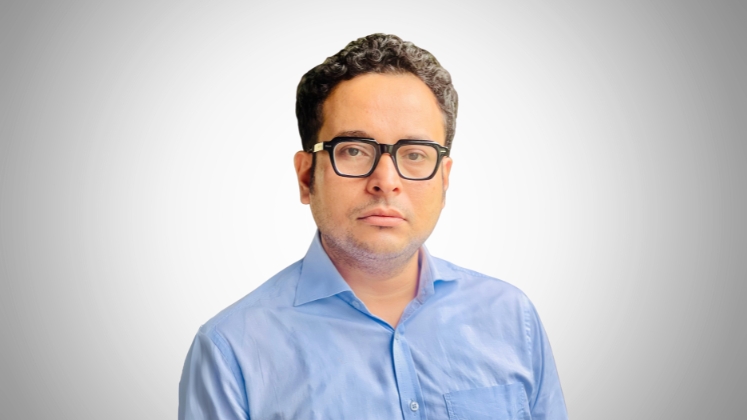
Renewable energy and ESG monitoring continue to top the efforts
With regard to RMG industry, nearly all the companies in Bangladesh have strong thrust on renewable energy, especially by solar plants. Most of the companies have plans to expand their investment on solar energy. Before discussing that, let’s first look at the upcoming SDG Goals and Paris Agreement of which Bangladesh is a subject to. The country is aligned with both the PA and the UN SDG Goals and has policies in motion and has set ambitious goals to reduce carbon emissions by 21.8 per cent by 2030, focusing on increased use of renewable energy and energy efficiency, as outlined in its 2021 nationally determined contributions (NDCs).
Shadman Sakib Anik, Founding Partner, CSR Window – a Sustainability & ESG Consulting firm having training programs in various RMG factories – underlined the significance of such initiatives, “Currently, only about 3.5 per cent of the country’s power comes from renewable sources, but the government plans to increase this to 40 per cent over the next two decades with both public and private sector efforts. Additionally, the SDG Financing Strategy targets 42 per cent of resources to come from the private sector, emphasising the significant role businesses play in achieving SDGs.”

| Bangladesh is missing out on millions of dollars in revenue because there aren’t enough laws or facilities in place to recycle cotton waste. According to experts, the country might be able to sell cotton waste to the recycling market for up to US $ 100 million a year. It may also reap major benefits for the environment, the economy and society by implementing the EU’s plan for creating a circular, sustainable textile sector. |
4A Yarn Dyeing Ltd., is the world’s first outerwear manufacturing factory to sign the UNFCCC’s Fashion Industry Charter for Climate Action, committing to reduce greenhouse gas emissions by 50 per cent by 2030 and achieving net-zero emissions by 2050. Recently, it also committed to the UN Global Compact (UNGC) and is initiating projects with them.
The company told Team AR that it has developed its own cloud-based ESG dashboard, which will be accessible to all soon.
Epyllion Group has also stepped up to modernise its ESG (Environmental, Social and Governance) and sustainability program by utilising SATTVA – an India-based ESG monitoring platform. This move will allow Epyllion Group to efficiently collect ESG and sustainability data across its operations in Bangladesh and align with global reporting standards. Epyllion Group can analyse this data, track performance and continuously improve its sustainability practices.
Bangladesh gets a lot of sunlight, and for better or for worse, it is almost always hot here. There are exciting developments in solar energy tech whereby circuits/panels can be printed on any surface to help generate electricity. Azeezur Rahman Khan, Founding Partner, A&A Global Consultants and General Manager, Thianis Apparels Ltd., commented, “This could be a game changer given the fact that traditional panel setups that we have at the moment are so space-intensive. Once windows have photoelectric coatings or even the very walls of the building start producing power, that would be an amazing development. I have already spoken to some students and researchers at BUET who are currently developing prototypes for this tech. Soon as it’s viable, I think the industry will make this the norm for new building construction.”

DBL Group, one of the leading apparel manufacturing groups in the country with a turnover of US $ 870 million, has initiated transformation 4.0 for the year 2030, with a core emphasis on governance, energy efficiency, leadership development and recycling. It had 140,022 tonnes of GHG emission as of FY ’22 and the same reduced by 11 per cent in FY ’23 to 124,305 tonnes.
Posh Garments’ energy footprint per tonne of production exhibited a notable decline, decreasing to 5.36 MJ in 2022, indicating a trend of improving energy efficiency in the assessed period. It has a target for 15 per cent reduction in GHG emission by 2030 and 50 per cent reduction in groundwater use by 2026 and 30 per cent increase in recycled materials by 2026.
“There is widespread use of renewable energy, recycling both cotton and poly-blended fabrics and maximising the use of recycled fibres or materials in garment production,” said Wasim Zakariah, Director – Posh Garments and Chairman of Standing Committee on SDGs, Co-Chairman of Standing Committee on Sustainability of BGMEA.

Blockchain and traceability having greater demand
Bangladeshi textiles manufacturer The NR Group has started using traceability, provided by FibreTrace, in its supply chain. The group’s operation comprises 23 affiliated companies, with a workforce of over 25,000 employees across Bangladesh, India, China and Sri Lanka. The company’s textile solutions span from spinning, knitting and dyeing to apparel making.
Arifur Rahman, Director, The NR Group, commented, “While many retailers and brands follow market trends, we approach sustainability from a manufacturer’s view, focusing on overall efficiency. The current emphasis on ESG and recycled cotton is crucial, but we delve deeper. Sustainability is more than just adopting recycled materials; it’s about ensuring real environmental impact. For instance, we avoid using 100 per cent recyclable cotton due to the counterproductive effects on production processes. Our approach stands against ‘greenwashing’; we are transparent about what truly benefits the environment and community.”
Using FibreTrace’s technology, even a farmer in a cotton farm demonstrates remarkable ability to trace the fabric of the shirt he wears. By logging into his computer, he can showcase the fabric’s journey through a country, shipping lines and more. One can be skeptical about this scenario thinking the farmer might be exaggerating! However, as Arifur said, when their team visited the cotton farm, the farmer issued a challenge: ship a batch of samples, log everything and revisit the results in a month or two. Accepting the challenge, NR Group’s team shipped cotton, tested everything and discovered that the process worked perfectly, solving both their problems and those faced by retailers. While the largest previous order from a single buyer had been around 500 tonnes, the Group’s team decided to take a leap and purchased 8,000 tonnes, essentially half of the farmer’s crop.
One of South Asia’s largest vertically integrated textile and garment companies, BEXIMCO, has also partnered with FibreTrace to deliver complete supply chain traceability in Bangladesh and beyond. The partnership sees FibreTrace pigment being applied to cotton, hemp, recycled polyester and recycled cotton fibre during the spinning process and will be with the textile for life – through use, reuse, recycling and reimagination.
Contrasting opinions also make room for more open dialogue!
A major chunk of the industry is also of the view that the stakeholders are not yet in sync. While there have been some good initiatives by both brands and the government, stronger collaboration is required. Low-interest financing or financial incentive schemes for sustainability initiatives need to be broadened and brands need to find ways to support the factories that do invest in sustainability. Many exporters are of the view that the investment in sustainability is a one-way cost. Shah Adeeb Chowdhury, Director, Evince Group stressed, “Maintaining sustainability requires high investment but unfortunately, it doesn’t reflect on price. A factory that failed to meet the sustainability requirements received the same price as us. Being a green manufacturer doesn’t provide us any advantages over other brands; their emphasis on sustainability isn’t reflected in the cost.”

All of water is recycled and reusable in Evince Group’s operations. Recently it’s company Evitex Dress Shirt Ltd., one of the largest woven garments manufacturing companies, has achieved a Platinum (recertifies) LEED certificate for existing building design by US Green Building Council (USGBC). It maintains a moderate work place temperature between 18°C to 27°C for enhanced performance of the workers.

